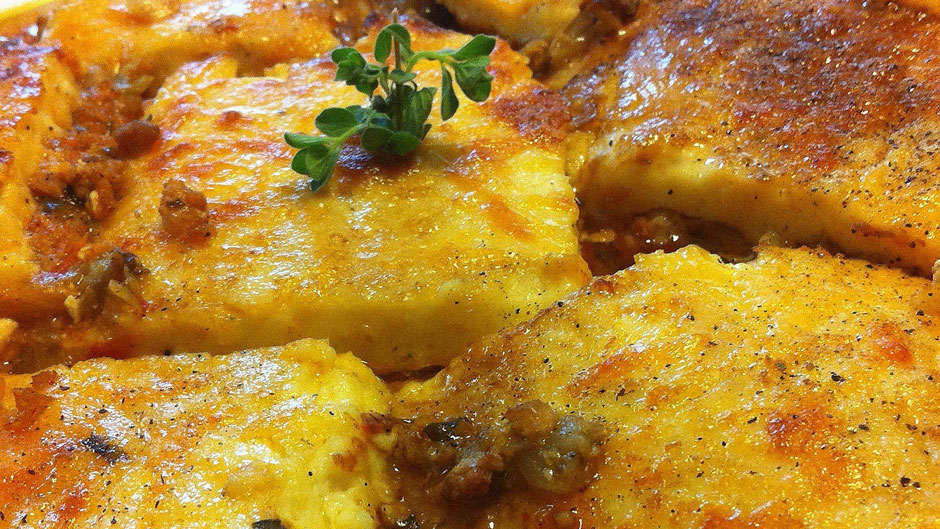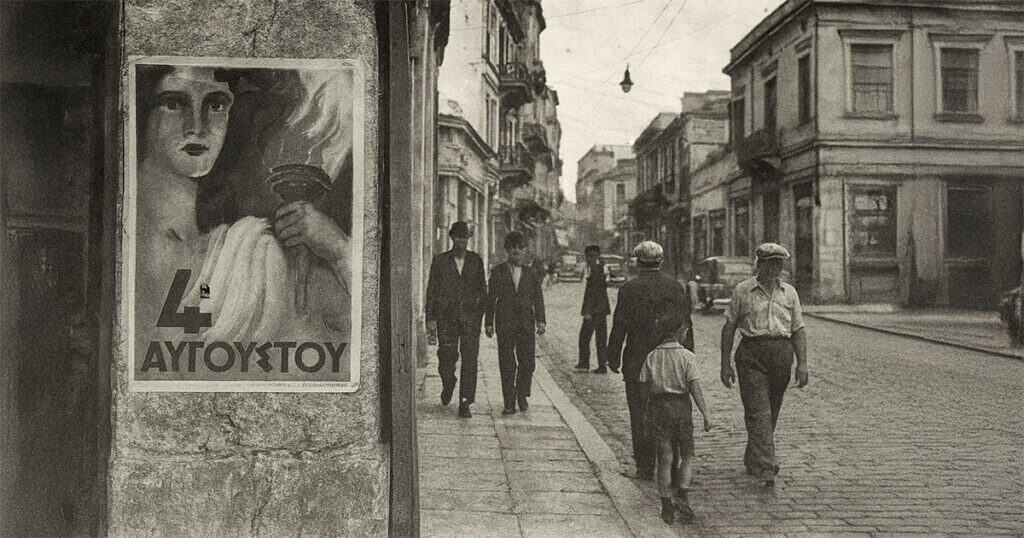If I took a poll among all cosmophilarakia asking them to name one and only one dish that’s 100% Greek and found in every Greek taverna from Sydney Australia to Astoria New York, I think that moussaka would be the unanimous choice.
Unlike baklava and imam, foods that we don’t know their exact origin moussaka you’d think either was a food staple during the Byzantine era or maybe in the Greece occupied by the Ottoman Turks. I can just picture the kleftes having too much retsina and switching from the traditional lamb kleftiko that was cooked buried in the ground with coals and hiding from the Turks who they were fighting to a clay pot of moussaka hot out of a fired oven.
A complex dish like moussaka has to have its roots in our rich historic past right? Wrong! Moussaka is as Greek as apple pie.
In the early 1900’s a Greek chef named Nikos Tselementes wrote the first Greek cookbook. 15 reprints and years later the name Tselementes became synonymous with cookbook and in Greece to this day any cookbook Greek or foreign is referred to as “Tselementes”.
Nikos Tselementes who was trained as a chef in Austria and France thought that Greece’s historic past was more in line with the great nations of Western Europe and needed to separate itself as much as possible from the Ottoman Turks of the east to the point that he omitted or minimized in his recipes the use of garlic and oregano and even replaced olive oil with butter. Moussaka became quickly the dish of the well to do Athenian upper middle class, quickly adopted by housewives everywhere and was a sign of good living. Growing up in rural Greece I remember very well news spreading around town that “Anna made moussaka today”.
By “westernizing” Greek recipes Nikos Tselementes committed a crucial error because our food was not only influenced a great deal by the east but in many cases was one and the same.
Food historians are now uncovering that it was the small villages in Greece where time stood still and we’re not influenced by this nuevo Greek cuisine that stayed true to the use of olive oil and sea salt and gave the rest of the world the now famous Mediterranean diet.Check out what Greek food guru Aglaia Kremezi says about moussaka:
I don’t know about you but I’m not taking this very well. First I find out that baklava is not entirely Greek and now moussaka with it’s bechamel sauce? What’s next? The Peloponnesian peninsula will be claimed by Egypt?
Did you know that what we Greeks have gotten it wrong and that Dolma is in reality sarma? Dolma is the cabbage leaf that is wrapped with herbed rice and ground beef where sarma is the grape leaf version. All those years and all those menus at Greek diners… who would of known and how did one get confused with the other?
My culinary world has been turned upside down but being a stubborn Greek I turn to moussakas’ step child pastitsio for comfort. Pastitsio has to be Greek right? Here too however we have a casserole made with bucatini pasta and an Italian name (pasticcio) which comes from the word pasta.
We can’t win them all I guess. Italians, take your pastitsio and you French, take your bechamel sauce. We still have feta, frappe and παιδάκια and the western world better stop fighting us (because we Greeks are #1) and if they don’t we will never repay our debt and start making drachmas again.







